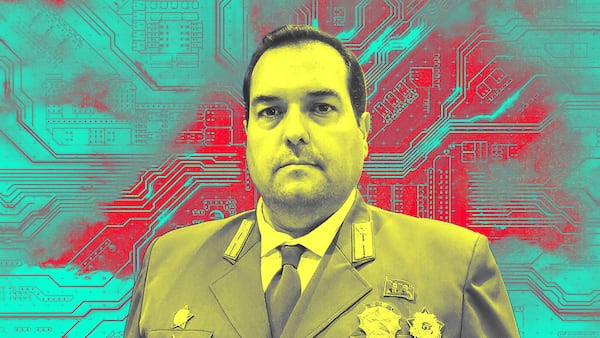- Prosecutors lay out details of case days before Pertsev's trial is set to begin.
- Indictment obtained by DL News provides details on 36 allegedly illicit transactions.
- Pertsev's lawyer denies the charges as supporters rally to his defence.
Alexey Pertsev, the Tornado Cash developer who has become a symbol of state overreach on crypto crime, laundered more than $1.2 billion in dirty money, according to an indictment by Dutch prosecutors obtained by DL News.
Pertsev, who is scheduled to stand trial in the Dutch city of ‘s-Hertogenbosch beginning March 26, “made a habit of committing money laundering,” according to the three-page document, which was written in Dutch and was revealed Tuesday.
Pertsev has denied he violated money laundering laws ever since he was arrested in August 2022.
“Prosecutors are suspecting Pertsev of money laundering and they have described it in a general way, but they don’t specify which exact acts he has committed to take part in the criminal offence,” Keith Cheng, Pertsev’s lawyer, told DL News Tuesday.
36 illicit transactions
While brief, the indictment laid out the contours of the state’s case.
It alleges Pertsev was a co-perpetrator in laundering assets through Tornado Cash, a so-called crypto mixer that makes it difficult to trace transactions.
Prosecutors listed 36 allegedly illicit transactions from decentralised protocols to Tornado Cash.
The biggest amount of over 175 ETH stemmed from Ronin Bridge, a crypto protocol that connected popular game Axie Infinity to the Ethereum blockchain.
Ronin suffered a $625 million hack in 2022. The US Treasury Department linked the hack to North Korean cyber group Lazarus.
Decentralised protocols like Harmony and Nomad Bridge also feature on the Dutch prosecutors’ list.
When US officials sanctioned Tornado Cash in August 2022, officials alleged the crypt mixer was used to launder millions of dollars from Harmony and Nomad heists.
Pertsev was arrested in the Netherlands a few days later and detained for almost nine months. He is now monitored with a GPS tracker and is not allowed to leave the country.
Tornado Cash co-developers Roman Storm and Roman Semonov, were also charged in August 2023. Storm is awaiting trial in September in the US.
Chilling effect
There’s a lot at stake for crypto in Pertsev’s case.
A guilty verdict may create a “chilling effect” if developers and the open source community fear running afoul of US authorities for working on projects that might be later deemed suspicious.
Many in the crypto community see the case against Pertsev as a legal assault on coding itself.
Supporters ranging from Coinbase to Ethereum developer Preston Van Loon to the Blockchain Association in Washington have rallied to Pertsev’s defence.
They have filed court papers in the US contending that developing software cannot be conflated with taking part in money laundering or similar crimes.
Nodding at this argument, Dutch prosecutors previewed what may well be an important element of their case.
“A cryptocurrency mixing service is not inherently illegal,” Dutch public prosecutors wrote in a statement shared with DL News.
“Simply writing code is not punishable,” they said. “Mixing criminal assets and concealing the origin of criminal funds is punishable.”
Inbar Preiss is DL News’ Brussels correspondent. Contact the author at inbar@dlnews.com.




